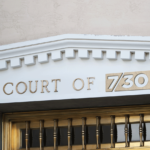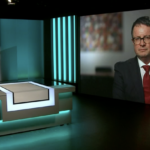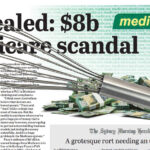The ‘rorts’ slur does nothing to save the system and may damage health by eroding patient trust.
Ambulances are stuck in loading ramps, emergency waiting rooms are clogged, patients are left abandoned on gurneys in hospital corridors. Our healthcare system is on the brink.
More than ever, we need our best and brightest minds in healthcare to come together and advance well considered solutions that can save Medicare. But rather than having a helpful debate on much-needed reform, we’re in the midst of a mud-slinging match.
In the red corner we have the Gold Walkley-winning investigative reporter, Adele Ferguson, and Medicare expert, Dr Margaret Faux. Together they claim that Medicare leakage through rorts and wastage is to the tune of $8b or almost 30% of the overall budget.
In the blue corner, we have AMA President, Professor Steve Robson, and RACGP President, Adj. Professor Karen Price who both assert that the estimates are based on shabby research and are wildly inaccurate, and that rorting, while abhorrent, is confined to a few bad apples.
Having dedicated the last 10 years of my life to trying to help GPs like my mum deliver patient care more sustainably, my allegiance is firmly in the blue corner.
In my heart of hearts, I believe that the majority of GPs are good people. In many ways they’re better than the rest of us. I had the choice to advance my medical career and train for five more years so I could serve my community in an undervalued profession. I chose business instead. I watched my mum and her colleagues put themselves in harm’s way during covid because they felt duty bound to continue to care for their patients in person. Meanwhile, I stayed at home and sold software.
Working closely with GPs and seeing their self-sacrifice firsthand, I’ve found myself reacting viscerally to the allegations of systemic fraud. In the age of partisan brinkmanship and online trolling, it’s so much easier to point fingers than to argue a position point-by-point.
But pointing fingers will not fix Medicare.
What does the evidence show? Let’s take a deep breath and examine Dr Faux’s claim:
That $8b per year is lost to Medicare through incorrect billing and fraud
This is not a random quote in a single article. It is a persistently repeated claim, which has been referred to nearly all stories related to the “Medicare Rorts” investigation by Nine masthead journalists, guest commentators and by Dr Faux herself.
The crux of the debate is not that Medicare fraud occurs. No one denies that healthcare has at least a few bad actors who do the wrong thing (just like any other industry). The crux of the debate is that corruption is so widespread that doctors are doing the wrong thing 30% of the time. This is a monumental assertion that questions the credibility of the entire profession.
Professor Robson was recently called out on 7.30 for not reading Dr Faux’s thesis, but I’m not entirely convinced that Ferguson has read it either. Why? Because the figures cited by Dr Faux rebuke her own claim of 30% Medicare leakage.
In the following table, we have the 10 mentions in Dr Faux’s PhD that relate to the quantum of leakage related to non-compliant billing.
| Page of PhD | Non-Compliant billing (%) | Non-compliant billing ($) | Evidence cited |
| 3 | 5-15% | $1.2bn-$3.6bn | ‘Absence of evidence’ |
| 5 | 5-15% | $1.2bn-$3.6bn | Webber |
| 77 | 5-15% | $1bn-$3bn | ‘Solely on extrapolation and expert opinion’ |
| 145 | 10-15% | $2bn-$3bn | ‘One commentator’ |
| 189 | 10-15% | $2bn-$3bn | ‘Some commentators’ |
| 204 | 10-15% | – | – |
| 206 | 10-15% | – | ‘It has been suggested’ |
| 290 | 5-15% | $1.2bn-$3.6bn | – |
| 339 | 5-15% | – | ‘Current best estimate’ |
| 390 | 5-15% | – | ‘Precise quantification was impossible’ |
The main takeaway is that Dr Faux’s claim of nearly 30% of leakage is undermined by the much lower figures cited in her own PhD thesis. The second takeaway is the lack of empirical evidence supporting her claims, which remain entirely opinion-based. The third takeaway is the glaring inconsistency across the figures and sources cited in her PhD.
The onus of proof rests with the prosecution
The presumption of innocence must apply to a group of people in the court of public opinion just as it does to an individual in a court of law. Similarly, the onus of proof for alleging group-wide culpability must be borne by the prosecution and be substantiated with compelling evidence.
Nine and the ABC have not even remotely met this threshold. They are instead staking her position on the opinion of Dr Faux, whose estimate of 30% Medicare leakage is contradicted by her own research.
The reporting has unashamedly brandished the claim of “30% Medicare leakage” in every follow-up report and editorial as though it is a statement of fact. Compounding matters, it has linked this claim to cherry-picked anecdotes of doctors billing sleeping patients and double-dipping Medicare. This only serves to confuse the issue. All sides agree that Medicare fraud exists to some degree. What we’re debating is whether the scale of fraud is of the order claimed.
Dr Faux has had every opportunity to communicate the methodology for her “implausible” estimate, but she has so far declined.
Ferguson, Dr Faux and any other commentator who asserts that fraud is widespread in general practice should feel welcome to provide genuine evidence to support their claims, but they need to meet a much higher standard of proof than opinion alone.
Doubling down on these claims amounts to wilful vilification of a professional body and an erosion in public trust for want of a good story. This goes beyond defamation. Trust is essential to the delivery of healthcare. When patients start doubting the motives of doctors, they are less likely to believe in their professional acumen and accept timely treatment advice.
Eroding trust in general practice with unsubstantiated claims can cost patients their lives.
Dr Ben Hurst is the CEO of Hotdoc.






